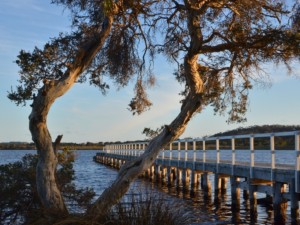Good news in tourism June 21 – 27, 2020
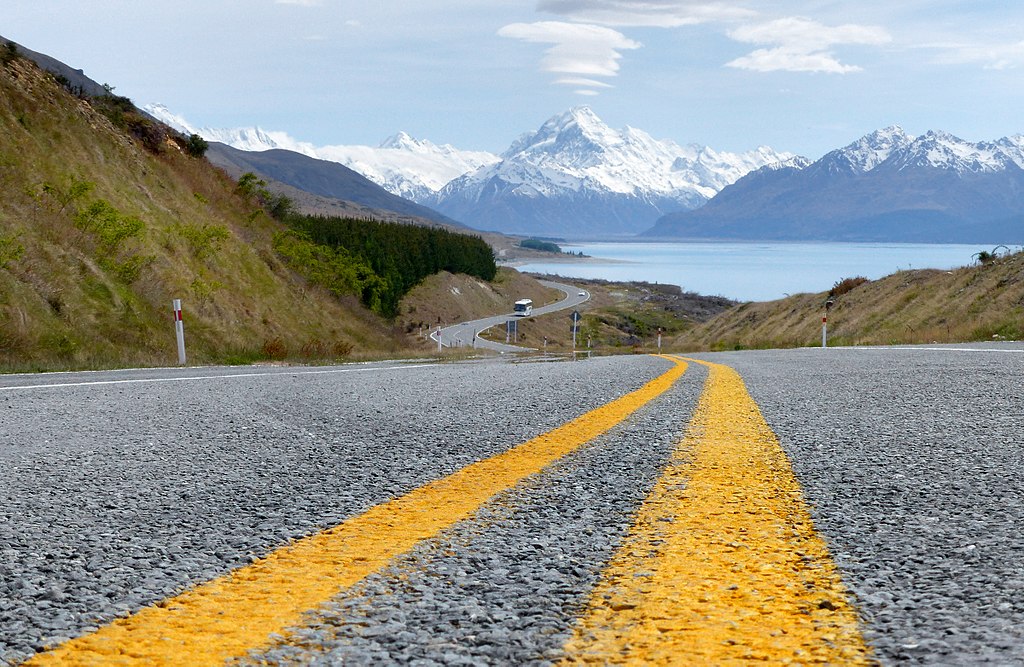
… because it’s everyone’s business!
Published every Sunday, “Good news in tourism” is the perfect pick-me-up for the start of a new week in travel & tourism.
This week in “Good news …”:
- Carbon-neutral aviation
- Carbon-neutral shipping
- Community focus
- Wildlife & ecotourism
- Arts, crafts, & cultural heritage
- Tourism infrastructure
- Friends indeed
- Odds & ends
It’s “Good Tourism”. And go!
Important “GT” news first:
Please welcome a new “GT” Insight Partner this week, Work for Wild Life International, whose founder & director Hollis Burbank-Hammarlund sent us news from the field — from the Elephant Healthcare Emergency Lifeline Fund in Chiang Mai, Thailand. Unemployed tourism elephants are having a tough time during the international travel shutdown. You can help.
Making good things better rarely necessitates tearing it all down to start again. In a fresh “GT” Insight published Friday, new “GT” Friend Josie Major of GOOD Travel in New Zealand describes how research and a little imagination can turn a quintessential Kiwi experience into something much better for everyone. Thanks to “GT” Insight Partner Second Look Worldwide for inviting Josie.
“This week EU ministers preparing for the next five-year budget, 2021 – 2027, signaled the creation of a EUR 40 billion [USD 44.9 billion] ‘just transition fund’ to help regions move away from fossil fuels and nuclear power,” reported Geoffrey Lipman of “GT” Insight Partner SUNx — Strong Universal Network. “The EU’s Green New Deal is magic and the travel & tourism sector must get with it,” he reckons.
The importance of good partnerships
Many commentators would like to see previously overcrowded destinations recover from the COVID-19 depression with a focus on quality rather than quantity. That would be nice, of course. However, some or many extant tourism stakeholders will likely go out of business should this happen. Don’t let one of those be you. Stay as positive as you can be. And seek out good partnerships with those who make you their priority.
“GT” is a good partner. Ask about partnership opportunities.
Carbon-neutral aviation
A consortium of companies based in Oslo, Norway, is building a pilot plant that will produce renewable aviation jet fuel using water, green energy, and carbon-capture technology. Norsk e‑Fuel is partnering with Climeworks whose technology absorbs CO2 from the atmosphere. Norsk e‑Fuel expects the plant to be running by 2023.
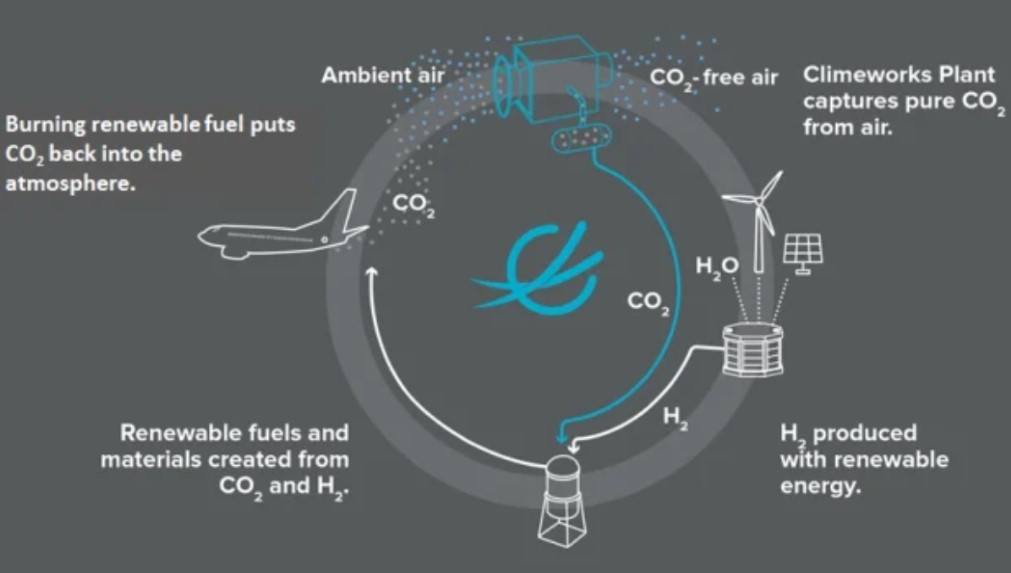
Prof Lipman of “GT” Insight Partner SUNx said he was delighted by such news. “In 2015, addressing the Arab Air Carriers Presidents Summit, I called for a “moonshot” for such a fuel, pointing out that aviation was pivotal to the future of travel & tourism and that it needed a multi-decade, all-hands-on-deck vision; like Kennedy had when he marshalled resources to put a man on the moon. It’s a call we have since repeated.”
Finland’s airport organisation Finavia has signed an agreement with the Helsinki Electric Aircraft Association to advance the electrification of aviation. Both parties are cooperating with the Nordic Network for Electric Aviation and with the electric aviation project of the Kvarken Council, which is a Nordic cross-border cooperation association.
Having bailed out its airline industry to the tune of EUR 7 billion (USD 7.9 billion), the French government has demanded that all airlines operating in France “go green” and replace up to 40% of flights on routes where there is a two-hour rail service alternative. This is good news if it doesn’t interfere in the development of electric aviation whose path to commercial feasibility is likely to start with short hops.
The UK’s Light Aircraft Association (LAA) has published information on electric power units. LAA CEO Steve Slater said: “In recent years, there has been a steady increase in interest in electric power for aircraft, partly driven by the developments in the automotive sector.” The PDF document helps anyone considering converting their light aircraft to electric power.
An above-ground race is set to take place in a town famed for its below-ground lifestyle. Alauda Racing says it will host an electric vertical takeoff & landing (eVTOL) “flying car” race in Coober Pedy, South Australia this year. Coober Pedy Business & Tourism Association treasurer Debbie Clee said the race was exactly what the town needed.
Writing for Aviation Today, Brian Garrett-Glaser reckons the “tipping point” for government investment in sustainable aviation may now be behind us. That suggests one can expect much more government investment in future.
Carbon-neutral shipping

Led by the Port of Antwerp, Belgium, a consortium of European maritime, research, and technology organisations have launched FASTWATER, a project to demonstrate the feasibility of methanol fuel for carbon-neutral shipping. The European Commission-funded project will look at how methanol works for retrofit and newbuild vessels, including a conversion concept for a river cruise ship.
A UK-based tech firm has landed a USD 1.23 million deal with US-based Carnival Cruises to help it reduce fuel consumption by 5 – 12%. Silverstream Technologies’ innovation pumps tiny bubbles — a “microbubble carpet” — through vents in a vessel’s hull to reduce friction between it and the water.
The Maersk Mc-Kinney Moller Center for Zero Carbon Shipping opened Thursday in Copenhagen, Denmark, backed by big names in the maritime industry. Set up as a “commercial foundation with a charitable purpose”, the Center will undertake “independent research” into shipping decarbonisation.
An opportunity for good partnership
“GT” is packaging a Good Partner button (125 x 125 pixels) for a whole year PLUS two free sponsored posts to be used any time during that period. How much? USD 365. ONLY! Sponsored posts can be about your news, event, place or product without the editorial constraints of a “GT” Insight. And as a “GT” Partner you also enjoy all the “Good news in tourism” advantages of “GT” Partnership, including a link to your favourite tourism-related charitable cause under the “Friends indeed” subheading.
Buy the “Good Partner” button now.
Community focus
At writing a petition had surpassed the 27,000 signatures needed to trigger a referendum on the future of tourism in the Netherlands’ capital Amsterdam. Petitioners want to prevent overtourism from once again blighting their city through such measures as capping the number of visitors at 2014 levels, banning short-term rentals of private residences, freezing new hotel development, and increasing tourist taxes.
In the USA, Colorado Tourism Office’s twin marketing campaigns explain to Coloradans that “when they step outside their house they’re making a difference and they’re perhaps giving somebody their job back”, according to CTO chief Cathy Ritter.
The CTO campaigns also remind folks to look after the state’s natural resources and show care for Coloradans by following COVID-19 safety guidelines; “five simple steps: Keep a six-foot distance from others, wear a mask, wash your hands, stay home if you’re sick, and check local guidelines,” Ms Ritter said. “Some Colorado communities are ready to welcome travellers and some are not.”
Coincidentally, in Colorado, Visit Durango is conducting a county-wide “resident sentiment survey”. “Nobody knows Durango better than its residents, and that is why Visit Durango is, for the first time, incorporating that feedback into our strategies.” Any responsible destination manager/marketer should do just that.

Kamloops in BC, Canada has closed the doors on its visitor centre in favour of getting out into the community to meet travellers and bolstering online resources. Tourism Kamloops’ decision to close the fixed location came after it worked out that every “meaningful” interaction there cost about CAD 120 (USD 87.6)!
Wildlife & ecotourism
Tourism, environment, and biodiversity stakeholders in Goa, India, including the Responsible Tourism Collective of Goa, are spearheading a citizens’ fight to protect forest land in Bhagwan Mahaveer Wildlife Sanctuary and Mollem National Park. The land is slated to be cleared for road, rail, and power line upgrades; projects that the National Wildlife Board has already approved. About 150 tourism industry stakeholders co-signed a letter addressed to the Union (national) ministers for tourism and environment & forests. [Callback: In April 2019, Justine Calais of the Responsible Tourism Collective of Goa shared her “GT” Insight into what’s really “Goa-ing” on in India’s Sunshine State.]
Thanks to the collaboration of wildlife tourism vessels, researchers have discovered much more about the numbers and habits of killer whales in waters off the south coast of Western Australia. Orcas congregate in the Bremer Sub Basin, a marine environment that produces bountiful food for the mammalian apex predators.
Much further north, for The Arctic Institute, Jan-Gunnar Winther and Ida Folkestad Soltvedt wrote: “[In Norway] we were surprised to hear the tourism industry ask for stricter regulations on its own activities. Ecotourism is advancing the sustainability of many places […] the coastal people we met expressed a strong will to increase overall value creation [while] conducting business in a more climate-friendly way and adapting to the consequences of climate change”.
Jamaica politician Imani Duncan-Price in an op ed: “Sustainability in our economic policy would mean investing in eco and community tourism [and the requisite infrastructure and marketing]. It would be worth it as these tourists tend to spend more money than the average all-inclusive tourist, and the dollar stays and spreads in the country.”
Morocco’s “enormous and fantastic natural capital” and proximity to the huge European market presents an opportunity for the tourism sector to position itself as “green and ecological”, according to a World Bank official.
Ecotourism and biodiversity hotspot Costa Rica is looking to gradually reopen its international borders from early July, with health protocols in place to facilitate this. For the domestic market, restaurants, hotels, and parks may now operate at 50% capacity.
Indonesia’s nature-based tourism attractions will be among the first to reopen. However, they won’t be exempt from strict health protocols, including limiting capacity to 50% of what previously considered normal.
USA Senator Mike Enzi is proposing an amendment to the Great American Outdoors Act that would require foreign visitors to pay more than US citizens to visit national parks. Not only would it help raise much-needed funds to maintain and upgrade facilities, there is nothing new about the idea. He said that in other countries tourists often have to pay much higher prices than locals.
Wyoming Wildlife Advocates in Wyoming, USA are making the economic argument for wildlife preservation. “Ecotourism has become the mainstay of many communities […] wherever grizzly bears are found. Large carnivores have become so rare that many will travel just to see them.” They also put up a billboard.
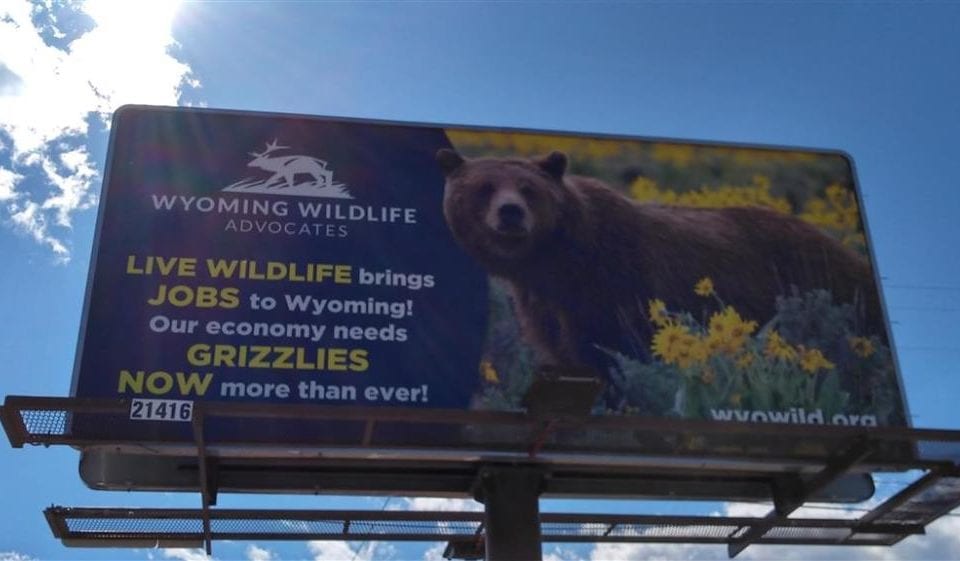
A new paid position to develop and promote ecotourism in Grady County, Georgia, USA was among the ideas suggested in a meeting of the Growth, Marketing, & Development Committee. The Committee wants to fit Grady County into a regional tourism promotion initiated by neighbouring Leon County in Florida. The Committee thought a network of trails centred around Tired Creek Lake would be “low-hanging fruit”.
The Exotic Animal Rescue & Sanctuary (EARS) is set to open in Asheville, North Carolina, USA. EARS will provide safe refuge for non-native animals previously held captive for entertainment or tourism purposes, or as private pets or curiosities. The facility will itself become part of the tourism landscape, offering campsite rentals, educational tours, and instructional retreats.
Cambodia’s Ministry of Tourism has announced it will develop ecotourism at Tek Chhub Khnar Pou, which has the only mangroves in landlocked Siem Reap province. “Everyone knows that mangrove trees grow in sea water but, here in Siem Reap, we have mangrove trees on nearly 100 hectares of land,” Tourism minister Thong Khon said.
Follow, flatter, finance
If you like “GT” and you don’t want to miss a thing, then subscribe to “GT’s” weekly e‑news — it’s free — and follow “GT’s” various socials, such as its LinkedIn page.
Join the conversation. Within reason — legality, topicality, decency, and good faith — all points of view are welcome … especially flattering ones, of course! 😎
And if you find “GT” inspiring, interesting, somewhat amusing, or at least different — because diversity is good, yeah? — then surely it’s worth a little something to you.
It’s huge to “GT”. Thank you very much to those who have donated. 😍
Arts, crafts, & cultural heritage
A university-led project will investigate the changing face of cultural tourism in central Australia. The Australian Research Council-funded project will focus on employment opportunities for Indigenous Australians at Uluru-Kata Tjuta National Park in the Northern Territory. Federation University professor of history Keir Reeves says lessons learned will be applicable to Indigenous cultural tourism across the country.
Arts festivals deserve a greater share of government-funded tourism promotion, according to Professor Ruth Rentschler and Dr Boram Lee of the University of South Australia. South Australia is known as the “Festival State” as it hosts several “significant” annual arts events. An Australia-wide study previously indicated that “cultural tourists travel further, stay longer and spend more than other tourists”.
To get the most of inbound tourism once international travel bans are lifted, Kerala Tourism in India is planning to increase lengths of stay through learning experiences. Kerala’s Responsible Tourism Mission is developing experiential learning packages in arts & crafts, the culinary arts, and martial arts. Durations range from two weeks learning how to cook local dishes through to 12 months of kalaripayattu (“practice in the arts of the battlefield”) instruction.

Egypt’s Ministry of Tourism & Antiquities has reduced ticket prices for foreigners by 50% in Qena, Luxor and Aswan. The goal is to promote cultural tourism programs during the summer, according to minister of tourism & antiquities Khaled el-Anani.
Tourism infrastructure
Vietnam’s Construction Ministry has proposed that foreigners be permitted to own “hospitality property” such as “condotels and villas”. The Ministry hopes this will reduce unsold inventory and boost tourism infrastructure investment.
Sarawak is a priority for tourism infrastructure development, according to Malaysia’s tourism, arts, & culture minister Nancy Shukri. Her state counterpart, Sarawak tourism, arts, & culture minister Abdul Karim Rahman Hamzah, said a new Visit Sarawak Campaign will focus on five key themes: culture, adventure, nature, food, and festivals
Major infrastructure projects along Kazakhstan’s Balkhash Lake shoreline will be complete by 2025, according to the Karaganda Region administration. It plans to build more than 20 new “recreation areas”, complete the repair of a highway, and rebuild the airport. Curiously, the lake’s western half is fresh water, yet it’s saline in the east.
Friends indeed
As international travel bans lengthen, belts tighten even further in places previously reliant on foreign tourism … Here are fundraisers worth considering because “GT” Friends & Partners are involved. (This content has appeared in “Good news in tourism” before, so enjoy it again or scroll down to the next subheading to skip.)
Khiri Reach, the charitable arm of “GT” Partner Khiri Travel, has set up a fund to support freelance tour guides. Khiri Reach boss Nia Klatte said: “We want to support a group of people who are among the very hardest hit by the current crisis: our guides, who are all freelance workers. Unfortunately, in Southeast Asia, the government safety nets are extremely minimal if they exist at all for freelancers. And while some domestic tourism is coming back, it will take months or years for tourism activities to return to ‘normal’.”
Tanner C Knorr of “GT” Insight Partner Second Look Worldwide is endorsing a fundraiser organised by “GT” Friend James Nadiope, who said: “Since Uganda went into quarantine with total lockdown followed by curfew, many families where we work go empty stomach with no food to eat. I would like to appeal to all well-wishers for financial donations to help these vulnerable families.” [Callback: In January, Mr Nadiope contributed a “GT” Insight into “How bees, trees, & tourism reduce human-wildlife conflict in Uganda”.]
The expression “an elephant in the room” means an uncomfortable truth we cannot ignore. Many Asian elephants and their mahouts in Thailand and elsewhere are in deep trouble. That’s why Hollis Burbank-Hammarlund, founder of “GT” Insight Partner Work for Wild Life International, would ask that you contribute to the Elephant Healthcare Emergency Lifeline Fund, which helps keep veterinarians on the job delivering essential emergency veterinary care to elephants that need it most … when they need it most.
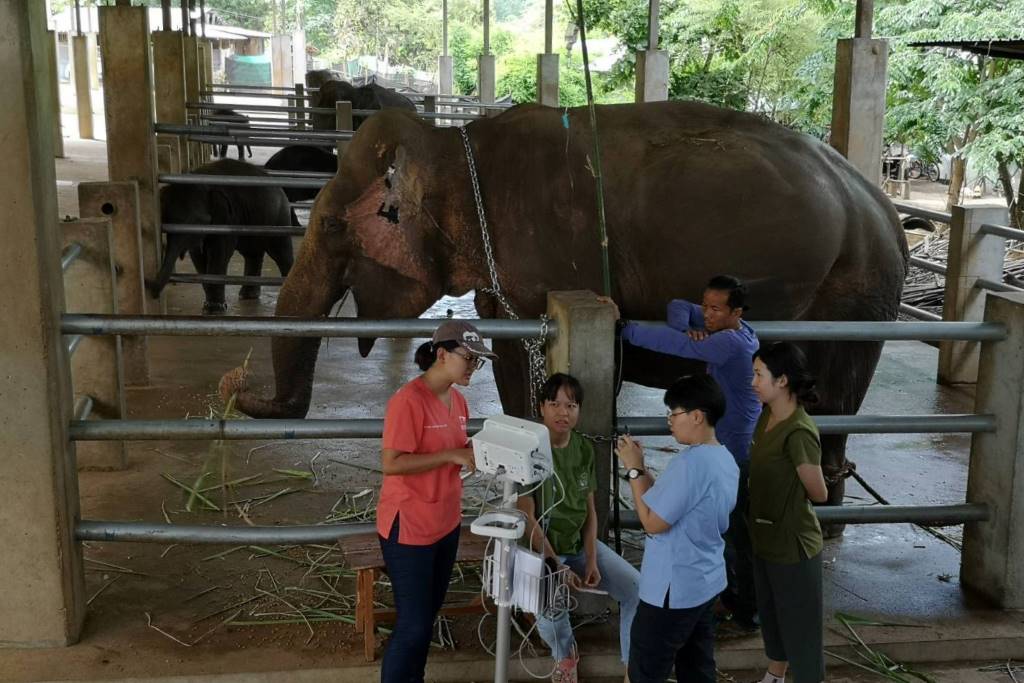
Forest patrols by Wildlife Alliance rangers in Botum Sakor National Park in southwest Cambodia may have to be suspended. The rangers’ equipment, food and wages are provided in entirety by the Golden Triangle Asian Elephant Foundation (GTAEF) and Cardamom Tented Camp both of which depend on tourism. And there is no tourism. An emergency fundraising page is live. [“GT” Friends Willem Niemeijer and John Roberts are associated with the fundraiser via Cardamom and GTAEF respectively.]
Not a fundraiser as such, but a great idea for accommodation providers: “GT” Friend Rachel Sherwood is organising well-deserved holidays for healthcare workers at the front lines of the COVID-19 fight. Operation Recuperation is collecting pledges from accommodation providers and second home owners from all over the world.
Odds & ends
Good news bits ‘n pieces that don’t easily fit into this week’s arbitrary clusters:
Nigerian Tourism Development Corporation boss Folorunsho Coker wants to see special measures and incentives to help Nigeria’s tourism sector recover from the COVID-19 depression. Mr Coker listed the deployment of track and trace technologies, eased travel restrictions and visa conditions, and tax relief among them.
Old news reheated: An eight-year effort to preserve under EU law the biodiversity of an area of County Louth, Ireland called “The Sliabh Foy Loop” also secured the protection of resident leprechauns. Was it to be sure? (Sorry.)
Stay healthy, smile, and have a good week!
Featured image (top of post): On the road to Mt Cook, New Zealand. By Bernard Spragg (CC0 1.0) via Wikimedia.
Donations, diversity, disclaimers
To help your correspondent keep his energy-efficient lights on, please consider a private one-off gift or ongoing donation. THANK YOU to those who have! <3
Thank you very much to those who have donated. 😍
You are a tourism stakeholder — yes, YOU! — so what’s your view? Do you disagree with anything you have read on “GT”? Join the conversation. Comment below or share your “Good Tourism” Insights. Diversity of thought is welcome on The “Good Tourism” Blog. And you will be supporting an independent publisher with your original content.
Disclaimer 1: It is “GT’s” policy to fully disclose partner/sponsor content. If an item is not disclosed as partner or sponsor-related then it will have caught “GT’s” attention by some other more organic means. Partner with “GT”. You know you want to.
Disclaimer 2: None of the stories linked from this week’s post have been fact-checked by “GT”. All terminology used here is as the linked sources used it according to the knowledge and assumptions they have about it. Please comment below if you know there has been buzzword-washing or blatant nonsense relayed here, but be nice about it as the linked sources might get offended. (“GT” won’t.) And as for “GT” bringing it to your attention so that you might be the one to set the record straight, you are welcome! 🙂





